Material topics
- 5Employment and labor relations in the supply chain
- 6Engaging with affected communities
- 7Employee health, safety and wellbeing in the supply chain
- 8Equality, diversity and inclusion in the supply chain
- 12 Resource use and circular economy
Responsible sourcing
Our responsible sourcing approach considers social, economic, and environmental aspects, and applies to our procurement of materials and services. We set out our expectations in our Supplier Code of Conduct, which must be acknowledged and signed by our priority suppliers at the start of our collaboration. As a chocolate production company, we prioritize the responsible sourcing of our raw and packaging materials. Our 12 priority materials are: cocoa, almonds, coconut oil, coffee, dairy, eggs, hazelnuts (Turkish), palm oil, raw sugar (cane and beet), soy lecithin, vanilla, and pulp- and paper-based packaging.

Impact, risk, and opportunity management
We address our responsible sourcing impacts, risks, and opportunities through our policies, our responsible sourcing approach and by taking actions to achieve the targets in our Sustainability Plan.
Our material impacts, risks, and opportunities
According to our Double Materiality Assessment (DMA), “Employment and labor relations in the supply chain,” “Engaging with affected communities,” “Employee health, safety, and wellbeing in the supply chain,” “Equality, diversity, and inclusion in the supply chain,” and “Resource use and circular economy: resource inflows” are material topics. We have identified material impacts, risks, and opportunities mainly in our upstream value chain in relation to these topics.
Lindt & Sprüngli recognizes that the production and sourcing of its raw materials can have social or environmental impacts. Negative social impacts can encompass human rights violations, low incomes for farmers, gender inequality, and poor labor conditions, including instances of child labor. These issues are particularly prevalent in the cocoa, hazelnut, coconut oil, and sugar cane supply chains, but also affect the production of vanilla and palm oil. In addition, negative environmental impacts can be associated with climate change and deforestation. For more detailed information on the impacts of each material, refer to Responsible sourcing of priority materials within this chapter and the Rural development chapter.
Key risk areas within our sourcing activity include the depletion and degradation of natural resource which may contribute to declining agricultural yields. A reliable supply of raw and packaging materials is essential to the success of our business, and increased raw material costs could negatively affect our financial performance.
Close collaboration with suppliers on the other hand presents opportunities and can facilitate improved relationships both with them and our other affected stakeholders in the value chain. Measures implemented through jointly developed responsible sourcing programs may be more effective than each company acting individually and result in Lindt & Sprüngli achieving a “partner of choice” status. By supporting farming communities, we could contribute to making farming more viable and attractive to the next generation of farmers. Through helping to increase productivity on reduced areas of land, we can play a constructive role in securing supply and reducing our carbon footprint.
Our related policies and documents
We set out our expectations in our Supplier Code of Conduct (Supplier Code). It requires our priority suppliers throughout the supply chain to adhere to our social, environmental, ethical, legal, and integrity standards, including compliance with laws and regulations, anti-corruption and anti-bribery, social and working conditions, and protection of the environment. The Supplier Code includes a commitment to respect human rights and requires adherence to the standards set out in our Human Rights Policy throughout our supply chain. For more information on international conventions and standards guiding our human rights commitment, see Commit to human rights and embed into policies in the Respecting human rights chapter.
The Supplier Code also incorporates our Speak Up Line, which encourages suppliers, their subcontractors, and their employees to confidentially report any concerns they may have about suspected misconduct at our sites or violations of the Supplier Code, without fear of retaliation. For more information on the Speak Up Policy, also see Our related policies and documents, and for further information on the grievance mechanism see Speak up Line – our grievance mechanism, both in the Upholding business ethics and integrity chapter.
The Supplier Code is applicable for the whole Lindt & Sprüngli Group and is distributed to our priority suppliers at onboarding, requiring adherence through acknowledging and signing the Supplier Code, or confirming equivalence of their own code of conduct. In the case of revisions, our suppliers have to re-confirm their adherence. In 2024, Lindt & Sprüngli continued the process to have new and existing suppliers sign the updated 2022 version of the Supplier Code. The Supplier Code requires suppliers to conduct regular internal assessments to ensure their compliance with the Supplier Code, agree to participate in any assessments conducted by or on behalf of Lindt & Sprüngli, and accept inspections of their facilities to verify compliance. The assessment and audit process includes specific checks on compliance subject matters for our suppliers, together with the standard assessments supported by EcoVadis. Further information on EcoVadis assessments and the audit process can be found in Supplier audits and remediation within this chapter.
Our internal Responsible Sourcing Guidance document specifies how all of the raw and packaging materials in our Responsible Sourcing Roadmap should be sourced. It also contains information on third-party sustainability certification or verification where applicable.
The Head of Responsible Sourcing is operationally responsible for the implementation of our responsible sourcing approach and for ensuring engagement with our suppliers. The Head of Responsible Sourcing reports to the Head of Procurement, who informs Group Management of any strategic changes. The Head of Cocoa Sustainability has operational responsibility for implementing our cocoa sourcing requirements and collaborating with cocoa suppliers on the implementation of the Lindt & Sprüngli Farming Program. The Head of Cocoa Sustainability reports to the Head of Group Sustainability who provides relevant strategic updates to Group Management.
Our responsible sourcing approach
Our responsible sourcing approach consists of the following five building blocks:
Supplier Code of Conduct
Our Supplier Code forms the basis of our supplier cooperation. For more information on our Supplier Code of Conduct, see Our related policies and documents within this chapter.
Supplier assessments
We use the EcoVadis framework to evaluate the sustainability performance of prioritized suppliers of direct and indirect goods and services of all our subsidiaries. In 2024, we expanded the scale of our assessment from 629 to 775 scored suppliers, which represents 57.7% of our total procurement expenditure across our Group. Based on expenditure, Lindt & Sprüngli prioritizes suppliers that have not yet undergone the assessment process. Our focus is then on ensuring that suppliers with expiring scores run the assessment again to renew their score. The assessment is based on 21 criteria and covers four topics: environment, labor and human rights, ethics, and sustainable procurement.
The EcoVadis framework takes into account material industry issues, presence in risk countries, and the size and geographical span of the supplier. Furthermore, the assessment considers international sustainability standards such as the Ten Principles of the United Nations Global Compact, the ILO conventions, the Global Reporting Initiative (GRI) Standards, the ISO 26000 standard, the Ceres Roadmap, and the United Nations Guiding Principles on Business and Human Rights (UNGPs).1
In 2024, our suppliers achieved an average score of 60.9 out of 100, an increase of 4.9 points compared to 2023. Expenditure weighted, the average score was 63.0. Every participating supplier, regardless of their score, receives an individual corrective action plan which outlines expectations on each criterion as well as training support via the EcoVadis Academy.
Supplier audits and remediation
We closely monitor and strive to improve responsible practices at supplier sites through our Supplier Sustainable Practice (SSP) Program, our supplier site audits, and remediation program. Based on prioritization derived from a risk assessment, the program focuses on packaging suppliers in Asia, with an emphasis on social and environmental aspects at production sites.
Currently around 10% of our packaging expenditure is linked to suppliers from Asia, especially for decorative materials, as well as for supplies for our Asian subsidiaries.
Depending on their risk profile, particularly on the nature of their business operations, we conduct on-site assessments of suppliers that present a significant risk. For new tier 1 and 2 contractors (sub-suppliers that do not have a direct business relationship with Lindt & Sprüngli), we conduct quick-check assessments which focus on compliance. Should suppliers have a low rating in their SSP audits, we require them to be audited on a more frequent basis and to show improvements.
Where feasible and reasonable, we reduce the volume we purchase from those with low ratings or replace them if necessary. Suppliers in the SSP Program that violate zero-tolerance issues, or repeatedly fail to improve, are added to Lindt & Sprüngli’s Group-wide block list.
For more information on the responsible sourcing requirements for our priority materials, see Metrics and targets below. For more information on the Lindt & Sprüngli Farming Program, refer to the Rural development chapter.
Supplier Sustainable Practice Program
The four steps of the Lindt & Sprüngli SSP Program
Number of on-site assessments in Asia
In 2024, 35 suppliers were assessed and 17 received a positive overall rating. For the remaining suppliers, we agreed on detailed action plans. These are reviewed frequently, both on and off-site. As a result of our continuous effort to deploy our on-site audit program, most of our packaging suppliers in Asia have undergone assessment over the years. A total of 97.6% of our procurement expenditure for packaging material from Asian factories is covered by the SSP Program.
Metrics and targets
Responsible sourcing of priority materials
Our Responsible Sourcing Roadmap covers the 12 priority materials we want to source, or start sourcing, responsibly by 2025. The materials were defined based on a comprehensive raw and packaging materials risk assessment. This took into account environmental and social criteria, supply chain risks and impacts, as well as sourced volumes and stakeholder expectations. It considered the unique risks and impacts of individual raw materials as well as the varying risk levels according to geographical origin.
Responsible sourcing requirements are in place for all of our 12 priority materials and many have made significant progress since the launch of the requirements, such as 100% of palm oil sourced being Roundtable on Sustainable Palm Oil (RSPO) certified, and 100% of our cocoa beans being obtained through the Lindt & Sprüngli Farming Program or other responsible sourcing programs. In 2024, we defined our responsible sourcing approach for almonds, coconut oil, coffee, chocolate mass, and dairy. This allowed us to meet our 2025 target one year ahead of schedule. We may not source 100% of each of the 12 materials through responsible sourcing programs by 2025 but 80% of our overall sourced volume bearing significant sustainability risks will continue to be covered by a responsible sourcing program.
Our partners in sustainability certification and verification
Rainforest Alliance
Lindt & Sprüngli selected Rainforest Alliance Certification as one of the trusted standards for our suppliers to comply with our responsible sourcing requirements for cocoa, almonds, coconut oil, hazelnuts, and vanilla. Where multi-year cocoa supply agreements are in place and the Lindt & Sprüngli Farming Program is being implemented, certification is not intended to replace the program. Rather, it serves as a basis for and an external verification of the scheme.
By sourcing Rainforest Alliance Certified raw materials we contribute to moving farming practices in our supply chain towards being more sustainable and regenerative. At the same time, this supports producers through training and technical assistance, information and data, and access to markets. Certified farms must adhere to the requirements of the Rainforest Alliance 2020 Sustainable Agriculture standard, which aims to increase the positive social, environmental, and economic impact of agriculture, while offering farmers an enhanced framework in which to improve their livelihoods and protect the landscapes where they live and work. The certification also promotes fair treatment and good working conditions for farmers and workers. Its approach requires certified farms and supply chain actors to assess and mitigate labor and human rights risks, including child labor, and to monitor the effectiveness of both the mitigation measures in preventing cases and the remediation measures applied to any violations identified.
The standard fosters transparency, responsible business practices, and shared responsibility by companies throughout the supply chain, thus promoting accountability. Companies involved in the supply chain of Rainforest Alliance Certified materials are expected to adopt responsible business practices, which include fair treatment of workers, ethical sourcing, and environmental stewardship. By the end of 2024, each Lindt & Sprüngli factory held a Rainforest Alliance Supply Chain Certificate.
SAI FSA
In the case of sugar and almonds, we require an attestation of achieving Silver level of the Sustainable Agriculture Initiative (SAI) Platform’s Farm Sustainability Assessment (FSA) or verification against any other sustainability standard that has been formally benchmarked as equivalent. Through a structured methodology and set of criteria, the FSA evaluates various aspects of sustainability, including environmental stewardship, social responsibility, and economic viability, within the context of farm management practices.
Read more about our responsible sourcing approach for each priority raw material below.
Responsible Sourcing Roadmap 2025
While responsible sourcing programs and third-party sustainability certifications represent enhanced approaches compared to conventional material sourcing, we recognize that further efforts are needed from various stakeholders to resolve the underlying causes of the many social and environmental topics of concern.
Cocoa
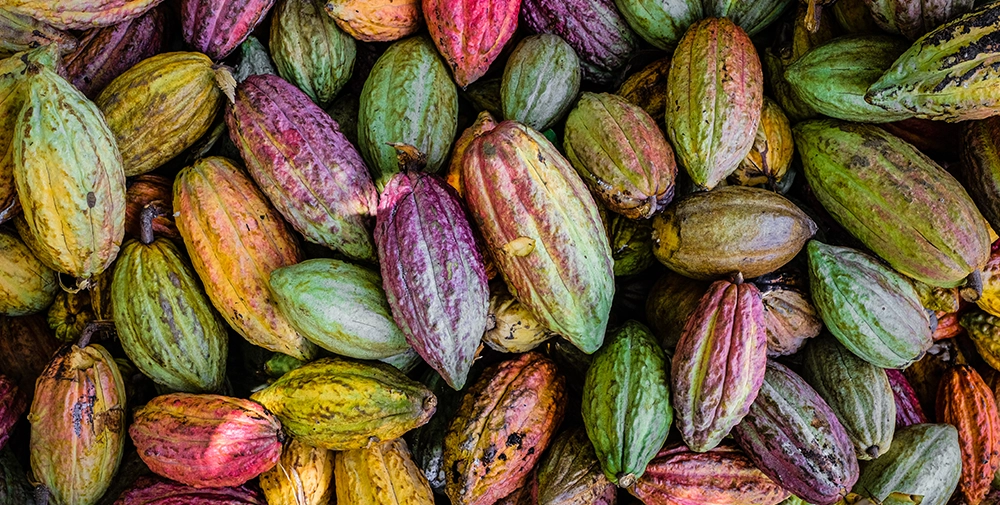
Cocoa is our most important raw material, and we are committed to sourcing it responsibly. We purchase cocoa beans, cocoa butter, cocoa powder, and – uniquely for Russell Stover and Ghirardelli – chocolate mass. Through the Lindt & Sprüngli Farming Program we aim to create decent and resilient livelihoods for cocoa farmers and their families and to encourage more sustainable farming practices.
Taking into account all cocoa products, we sourced 142,929 metric tons of cocoa bean equivalents2 in 2024. In total, 84.2% of cocoa bean equivalents were sourced through the Lindt & Sprüngli Farming Program or other responsible sourcing programs (up from 72.3% in 2023), including: 100.0% of cocoa beans, 79.5% of cocoa butter (up from 50.2% in 2023), and 61.8% of cocoa powder (up from 31.3% in 2023). By year-end, we were not yet sourcing chocolate mass through the Lindt & Sprüngli Farming Program or other responsible sourcing programs.
We remain on track to achieve our target. Whenever cocoa, including butter, powder, and chocolate mass, is not sourced through the Farming Program, we plan to use Rainforest Alliance Certification as a minimum requirement as of January 1, 2025.
Cocoa sourced through responsible sourcing programs
Percentage of cocoa beans equivalent1 sourced through the Lindt & Sprüngli Farming Program or other responsible sourcing programs, verified or certified by a third party
Almonds
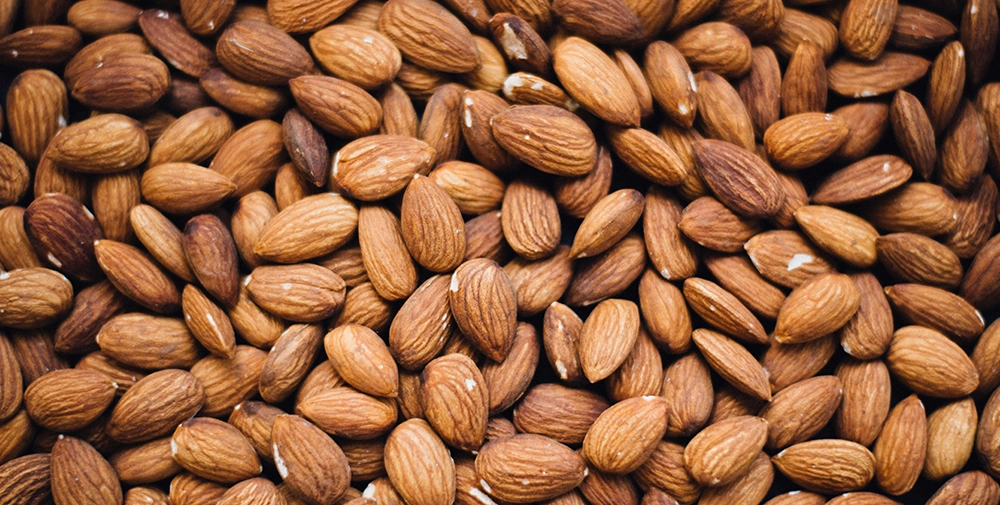
Almond production is particularly demanding in terms of water use and puts significant pressure on water resources in almond-producing regions. Additionally, unsustainable practices on almond plantations can disturb local ecosystems and biodiversity. Lindt & Sprüngli expects its suppliers to contribute to a traceable and verified almond supply chain by demonstrating verification against the SAI Farm Sustainability Assessment (FSA) Silver level or against any other responsible sourcing program that has been benchmarked as equivalent to the SAI FSA Silver level.
The Farm Sustainability Assessment (FSA), developed by the Sustainable Agriculture Initiative Platform (SAI Platform), can be applied to any crop anywhere in the world with any farming system. It enables food and drink businesses to assess, improve, and validate on-farm sustainability in their supply chains.
Coconut oil
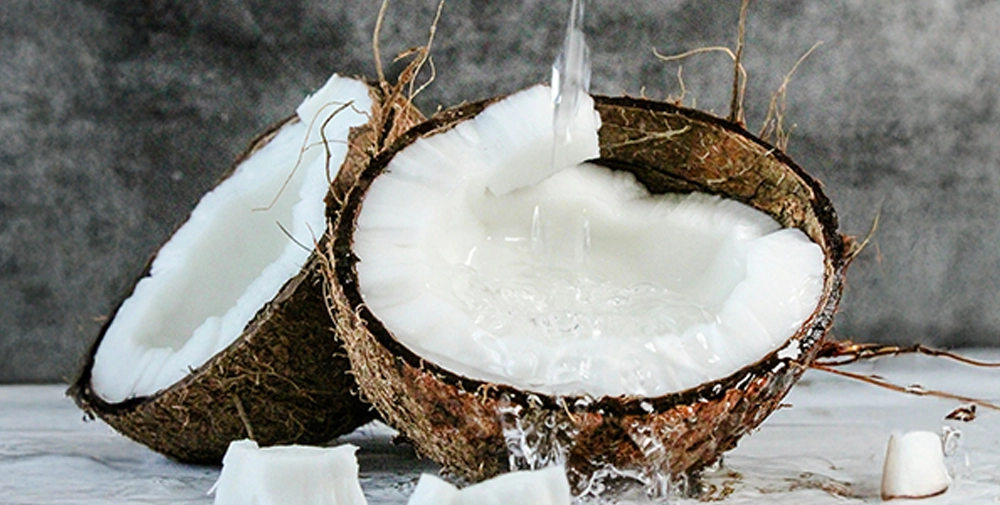
Coconut producers face severe challenges, including income insecurity, poverty, and challenging labor conditions. Additionally, coconut production is associated with ecosystem degradation and deforestation. Lindt & Sprüngli aims to support measures addressing those sustainability challenges in its coconut supply chain by requiring our suppliers to deliver Rainforest Alliance Certified coconut at “Mass Balance” supply chain traceability level.
In 2024, 0.5% of our coconut oil supply was Rainforest Alliance Certified at “Mass Balance” traceability level.
Coffee
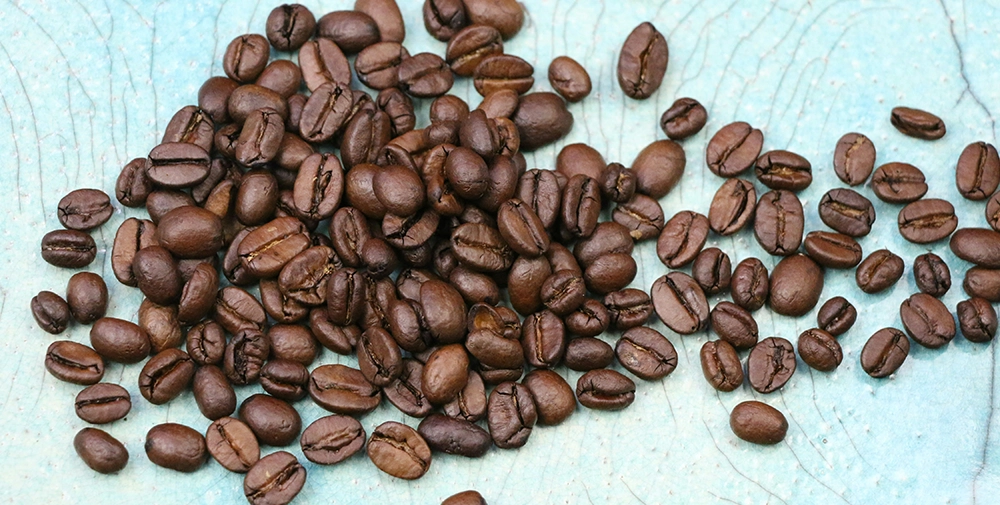
We use small volumes of coffee in Lindt & Sprüngli products and serve significantly higher volumes of coffee as a beverage in our Lindt cafés and restaurants of the Lindt & Sprüngli Group. Producers of coffee face various challenges, including adverse effects of climate change and deforestation on coffee plantations, ecosystem degradation, poor labor conditions, and economic viability.
By requiring Rainforest Alliance, Fairtrade International, Fairtrade USA, or 4C The Common Code for the Coffee Community certification for all coffee we serve at Lindt & Sprüngli’s retail sites and in our restaurants and cafés, we aim to address those challenges in our coffee supply chain.
In 2024, 21.6% of our coffee supply was certified against one of the certification standards listed above.
Dairy

Liquid milk, milk powder, and milk fat are essential ingredients of Lindt & Sprüngli chocolate products. Due to the risks related to environmental degradation and animal welfare in milk production, Lindt & Sprüngli has established the following requirements for its dairy sourcing:
- Traceability of liquid milk, milk fat, and milk powder used in Lindt & Sprüngli products from our factories back to the farm.
- Suppliers comply with animal welfare schemes that include, at the minimum, the five freedoms of animal welfare (for the detailed definition, see Glossary).
In 2024, 65.4% of our liquid milk, milk powder, and milk fat sourced met both our traceability and animal welfare requirements. Compliance with our traceability requirements was audited and confirmed by a third party. Compliance with the animal welfare requirements was either confirmed through the BoviWell cattle welfare assessment, the SwissMilk Green production standard, or another third party verified scheme recognized by and integrated into the Sustainable Dairy Partnership (SDP).
Lindt & Sprüngli recognizes the climate impact of milk production, which is primarily driven by greenhouse gas emissions from dairy cows and associated land management practices. In addition to the responsible sourcing requirements mentioned above, we consider this area within our climate strategy. In 2024, we began collaborating with our dairy suppliers to identify ways to reduce emissions in dairy production. For further information on our Roadmap to net-zero, see our Climate chapter.
Eggs

Lindt & Sprüngli aims to ensure that our suppliers improve their welfare standards for animals raised to supply ingredients for our products.
We use eggs in small quantities in just a few of our products. To support improvements in the welfare of egg-laying hens, we aim to source only cage-free eggs for our own production.
In 2024, 100.0% of the eggs used in our own production were from cage-free production (89.4% including Russell Stover). We do not report on eggs sourced by co-manufacturers but we plan to extend our responsible sourcing requirements for eggs to co-manufacturers from 2026.
Palm oil

Palm oil, palm kernel oil, and their fractions are used in limited amounts in certain fillings of our chocolate. Overall, we buy less than 0.01% of the global palm oil harvest. These products are important for their melting properties and for providing a neutral flavor. Their production under uncontrolled conditions may, however, be associated with environmental and social issues, including deforestation and conversion of peatlands, biodiversity loss, exploitation of workers, and adverse effects on local communities and indigenous peoples.
We only purchase palm oil certified according to the Roundtable on Sustainable Palm Oil (RSPO) and always declare palm oil use on our product packaging. The RSPO criteria stipulate that effective implementation of the principles and criteria is designed to lead to safe and decent work for all community members. They include requirements around forced labor, the protection of children’s rights, freedom of association, non-discrimination, working hours in line with ILO conventions, respect for land and land-use rights, and ecosystem protection. The standards are in line with international and local ones, including the UN Declaration on the Rights of Indigenous Peoples, the UNGPs, and ILO Conventions on Forced Labor. They incorporate public participation of affected communities.
Since 2011, Lindt & Sprüngli has been sourcing 100.0% of its palm oil, palm kernel oil, and their fractions with RSPO certification, initially according to the RSPO Book & Claim system, and since 2018, physical supply chain coverage has been secured for all volumes. All of our products produced in Europe follow the “Segregation” traceability model (see Traceability models in the Glossary). Our US subsidiaries use a mix of RSPO Segregated and Mass Balance palm oil, palm kernel oil, and their fractions, but keep them separate in bookkeeping. Lindt & Sprüngli aims to achieve physical traceability in its palm oil supply chain and we encourage our commercial partners to contribute to this goal. For detailed information, see our latest Annual Communication of Progress to the RSPO.
Hazelnuts
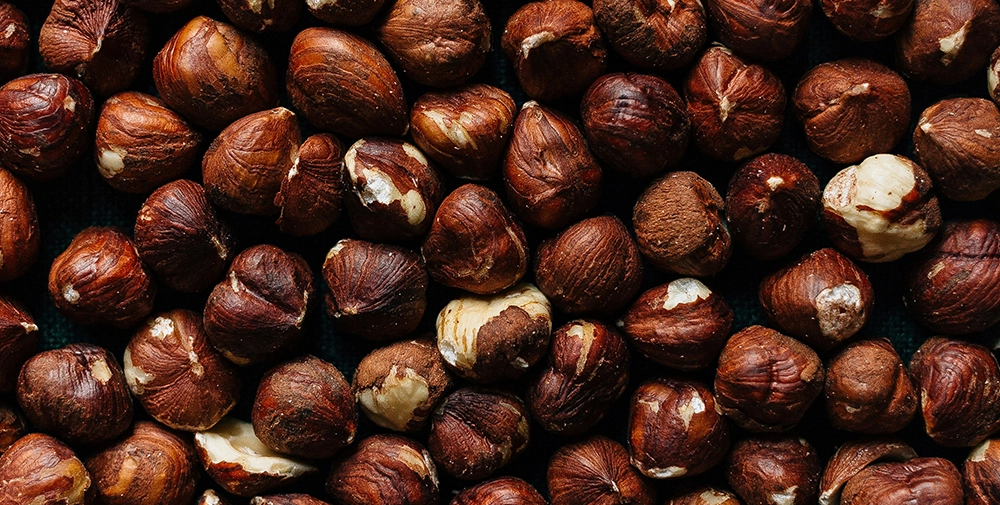
Hazelnuts3 are a key raw material for Lindt & Sprüngli chocolate products and we source them primarily from Italy and Türkiye. The supply chain in the Turkish Black Sea region, where approximately 70% of the world’s hazelnut harvest originates, has high risks related to labor conditions such as the health and safety of farm workers, child labor, and seasonal workers’ working and accommodation conditions. We have long-term relationships with selected suppliers who work with, and have established relationships with, a stable farmer base.
As of harvest season 2023, we increased our responsible sourcing requirements and engaged our trusted base of selected suppliers of Turkish hazelnuts to deliver Rainforest Alliance Certified hazelnuts through segregated supply chains. In 2024, 99.0% of our Turkish hazelnuts were Rainforest Alliance Certified with “Segregated” supply chain traceability.
Rainforest Alliance Certification includes third-party verification against the Rainforest Alliance 2020 Agriculture Standard as well as the Rainforest Alliance Sustainable Agriculture Supply Chain Standard for all actors in the supply chain.
Turkish hazelnuts sourced through responsible sourcing programs
100%
Status 2024: on track
Sourced through Rainforest Alliance Certification:
99.0%
Sourced through other responsible sourcing programs:
1.0%
Soy lecithin
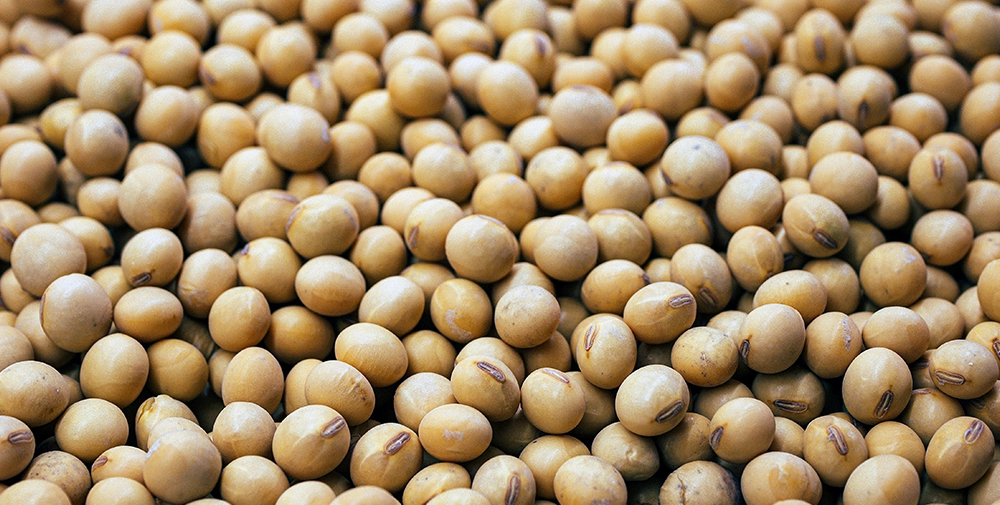
Lindt & Sprüngli uses soy lecithin to create the desired consistency of our chocolate. Soy cultivation is associated with different negative environmental and social impacts, in particular deforestation.
For soy we rely on the ProTerra Standard. This is a widely recognized and trusted standard in the food industry, based on the Basel Criteria for Responsible Soy Production. It integrates human rights issues, including workplace safety and equal opportunities with an emphasis on child and forced labor prevention, as well as land-use conversion and forest conservation, responsible labor policies, and traceability. It also certifies non-GMO soy.
In 2024, 99.8% of our soy lecithin was sourced ProTerra certified. Two co-manufacturers are still in the process of adopting the Lindt & Sprüngli responsible sourcing requirements.
Vanilla

Vanilla is a high-value ingredient in Lindt & Sprüngli products. Producers of vanilla face severe challenges, including food insecurity, poverty, and vulnerable livelihoods. Additionally, conventional vanilla production is associated with environmental degradation and deforestation.
Lindt & Sprüngli aims to address those sustainability challenges in the vanilla supply chain by requiring all pure vanilla (vanillin from vanilla pods) used in our products to be Rainforest Alliance Certified at the “Segregated” supply chain traceability level.
We defined these new sourcing requirements for vanilla in 2022. In 2024, 37.5% of our vanilla products sourced were Rainforest Alliance Certified.
Raw sugar (cane and beet)
Sugar is a key ingredient in chocolate, used to offset the bitterness of the cocoa beans while bringing out their natural flavor. It can however threaten ecosystems and communities if it is grown and harvested without professional farm management. We have defined individual responsible sourcing standards for raw cane sugar and for raw beet sugar to help drive the adoption of responsible sourcing practices across the sector.
Beet sugar
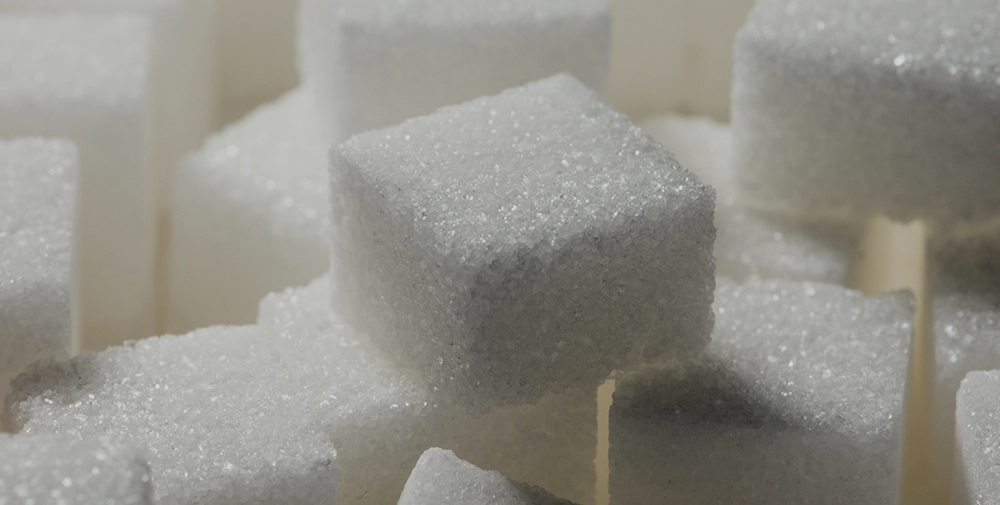
The Farm Sustainability Assessment (FSA) developed by the Sustainable Agriculture Initiative Platform (SAI Platform), is applicable to many crops, regions, and farming systems. It enables food and drink businesses to assess, improve, and validate on-farm sustainability in their supply chains.
Lindt & Sprüngli expects its suppliers to contribute to a traceable beet sugar supply chain and professional soil management by demonstrating verification against the FSA. All pure beet sugar supplied to Lindt & Sprüngli will have to achieve at least Silver level performance or equivalent benchmarked by FSA, by 2025. In 2024, 99.9% of our beet sugar supply was compliant with this requirement.
Cane sugar
Bonsucro is the leading global sustainability platform and standard for cane sugar. Bonsucro strives for farmers to produce crops under improved environmental standards, adapt to climate change, and increase their productivity. This approach helps Lindt & Sprüngli address negative social, environmental, and economic impacts of its cane sugar sourcing. Due to availability constraints of segregated Bonsucro-certified cane sugar in certain regions, our traceability expectation is currently Mass Balance level for cane sugar. For US-produced cane sugar where no Bonsucro certification is available, volumes will be covered by the Bonsucro credit system until the first certified suppliers are available.
In 2024, 98.7% of our cane sugar supply was Bonsucro-Mass Balance certified or credit compensated.
Pulp- and paper-based packaging
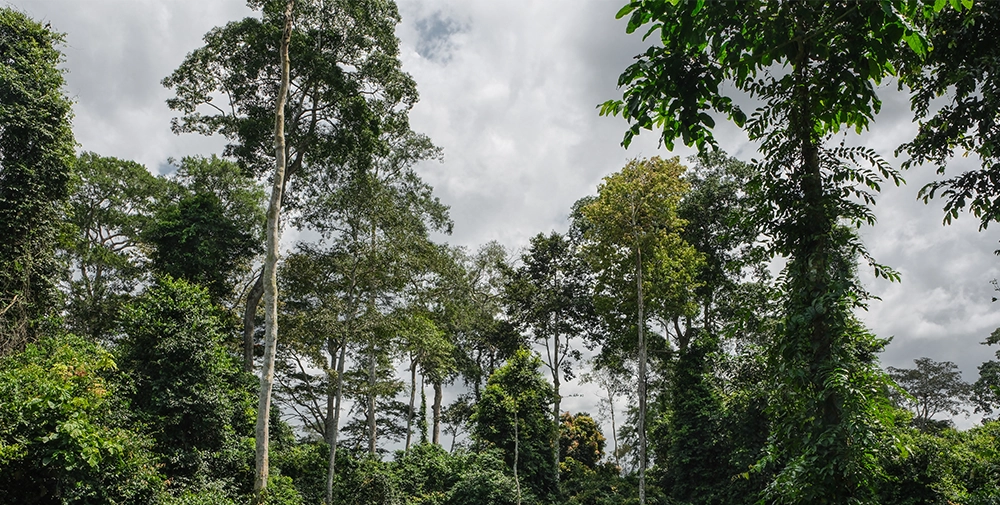
We recognize the global threats to forest ecosystems generated by unstructured forest management and climate change and the negative consequences they may have for biodiversity and communities. Lindt & Sprüngli supports legal, responsible, and economically viable management of the world’s forests by sourcing third-party-certified pulp- and paper-based packaging.
Lindt & Sprüngli’s priorities and definition of professional forest management and sustainable paper supply chains closely align with those of the Forest Stewardship Council (FSC)4 and the Programme for the Endorsement of Forest Certification (PEFC)5.
We, therefore, require wood-based pulp- and paper-based packaging to be certified by the FSC, the PEFC, or any of its endorsed national members by 2025. These requirements apply to paper and cardboard packaging products containing wood fiber, including paper, corrugated board, folding box cardboard, and Transportation Units and Display Units. We defined these requirements in 2023. In 2024, 78.6% of this pulp- and paper-based packaging was FSC or PEFC certified.
Outlook: Our responsible sourcing approach until 2025
To achieve our responsible sourcing targets by 2025, we plan to do the following:
- Further roll out the EcoVadis assessment as our supplier management assessment tool
- Source further volumes compliant with our responsible sourcing requirements for almonds, coconut oil, coffee, dairy, packaging, and vanilla
- Roll out the responsible sourcing approach for chocolate mass and continue to increase the share of responsibly sourced cocoa butter and powder to achieve the 2025 cocoa target
- Continue to evaluate and evolve responsible sourcing approaches for our priority materials, especially regarding cross-cutting topics such as human rights, no deforestation, and carbon emissions, considering new and upcoming regulation
1Find more information on the EcoVadis rating methodology and principles on the EcoVadis website.
2Cocoa bean equivalent is calculated using the conversion factors of the International Cocoa Organization (ICCO): cocoa butter to beans: 1.33; cocoa powder to beans: 1.18; cocoa liquor to beans: 1.25. The number excludes an immaterial volume of ingredients which contain cocoa products combined with other materials.
3Excludes ingredients which contain hazelnuts combined with other materials; scope expanded from unprocessed hazelnuts to include both processed and unprocessed hazelnuts (total).
4Lindt & Sprüngli’s license number for trademark use: FSC-N004244
5Lindt & Sprüngli’s license number for trademark use: PEFC/01-44-53
PwC CH
